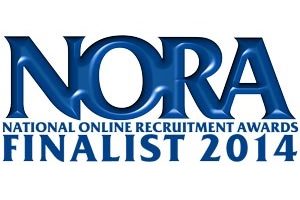At the end of most job interviews, you will have the opportunity to ask your interviewer some questions. This is a great opportunity to show just how interested you are in the role, the company, and the industry. It’s also a chance to make sure that the role and company are for you. The answers your interviewer gives will provide an invaluable insight into the company and its culture.
If you don’t come prepared with questions to ask, you run the risk of seeming uninterested or unorganised. We recommend that you have at least 10 questions ready for your interview and list them in order of relevance. Aim to ask about half of these in your actual interview. It’s best to over-prepare as you are very likely to cover some of the questions earlier on in the interview.
Planning your questions
As you carry out your research into the company and industry prior to your interview, jot down any questions that occur to you. Questions that have arisen from this specific research are more likely to impress your interviewer as it really indicates that you’ve done your homework.
Make sure that your questions are open-ended and can’t be answered by a simple ‘yes’ or ‘no’. Also avoid questions about salary or company benefits at this stage. You want to focus more on how you will benefit the employer rather than what they can give you for the moment. Save the negotiations for the job offer.
Don’t bombard your interviewer with complicated multi-part questions. You want to show your enthusiasm, but you don’t want to overwhelm them. Remember to keep it professional and don’t ask anything too personal. You want to try and encourage some rapport with your interviewer, but make sure you don’t go too far.
We recommend that you take a copy of the job description with you into the interview and you can make a note of your planned questions on this. While you’re doing this, highlight any parts of the job description that you would like to be clarified further and this can be the basis of more questions.
Once you have some questions together, we suggest that you supplement your list with some of the following. Here are our ten favourite questions to ask interviewers:
Top questions to ask interviewers
Could you outline the day-to-day tasks of this role?
This is a great opportunity to find out what you might be doing on a daily basis and can help you work out if this is the role for you. It could also help you spot any gaps in your skillset and gives you the opportunity to address these before you start (should you get the job). Conversely, it could also highlight any useful skills you have that haven’t already been mentioned throughout the interview.
Is this a new role?
It’s always good to know if a role has been newly created or if you’re following in someone’s footsteps. You may need to be prepared for a few teething problems if it is a new role.
This could potentially be a ‘yes’ or ‘no’ question, so there are some follow-up questions depending on the answer. If it is a new role, it is important to ask ‘what do you expect to achieve by creating this role?’
If it isn’t a new role, you could ask ‘what did the previous person in this role do particularly well?’ This could lead to valuable information about what will be expected of you that might not be mentioned in the job description.
Can you describe the company culture?
This is a common question for candidates to ask, but a very important one. The answer will give you a good idea as to whether you will fit in with that culture and if you’ll enjoy working for the company. You could ask for your interviewer’s personal experience here for some additional insight.
What sort of training do you offer your staff?
It’s a good idea to find out early on what the opportunities for progression are. You don’t want to be stuck in a role that won’t allow you to develop your skills. This will also let your interviewer know that you have an eye on the future and would like to progress at that company. This demonstrates commitment to the role, the company, and your own personal development.
What skills would I have to demonstrate to pass my probationary period?
New employees will usually have to pass a probationary period of around three months. Asking what your employer will expect of you in this time is a great way to prepare yourself for those tricky first few months. It will reveal where your main focus should be when you start your new job. It also demonstrates that you’re thinking ahead and are eager to prove yourself.
Where do you think the company will be in 5 years time?
This will reveal what the company’s ambitions are for the future. This will give you an idea of whether they are expanding their business. It also indicates that you would like to help the company with this process.
What is the typical career path for someone in this role?
You could even make this a direct follow-on question to the previous suggestion by asking ‘where do you expect the successful candidate for this role to be in 5 years time?’ By asking this, you demonstrate your determination to progress and your intention to stay with the company for an extended period of time. The answer will give you an idea of how quickly people usually progress in such roles.
What sort of managerial structure does the company have?
It’s important to work out where you will fit in the structure of the company. Who will you be reporting to? Who will you be working closely with? This could also give you an idea of potential progression routes in the future. It’s good to indicate to your interviewer that you’re thinking about these kinds of things.
What measures do you put in place to determine the success of your staff?
This shows that you are already thinking about targets and objectives and how you can prove yourself. This proactive attitude is likely to impress your interviewer and their answer could give you some great tips of how to stand out if you get the job.
When can I expect to hear from you and what are the next steps in the interview process?
Make sure you leave the interview knowing what to expect next. Not only do you come across as eager to progress to the next stage, you will be prepared to wait a few weeks if they have lots of candidates still to interview.
For more automotive interview tips and advice, take a look at our other articles on how to shine at your interview and learn the best way to answer ‘what can you bring to this role?’
[simplyjobs site_url=”https://www.simplysalesjobs.co.uk/” placement=”post” site_name=”Simply Sales Jobs” username=”SEO_TEAM” password=”fmgseo” feed_identifier=”blog_ssj_all” ][/simplyjobs]
What To Share On Social Media When Jobseeking
There are plenty of articles out there advising jobseekers to be wary of their social activity when looking for their next career move. Here what you should be posting about!
How Not To Sell – As Seen On BBC’s The Apprentice
We’re only 2 episodes in to the latest series of The Apprentice and already there’s been some excellent examples of how not to sell a product. Here are some of our favourite lessons learned so far…
How To Get Customers To ‘Buy Into’ Your Products Without Having To Sell Them
When selling your products and services, you know that buyers will not be really interested in the features. Saying something like, “Yes, this model goes from zero to sixty in less than nine seconds”, or “Our WX600 can pump out 60 copies per...
Introducing The NORA Finalists 2014
The NORAs are the National Online Recruitment Awards, and they have been celebrating achievement in online recruitment since 2001. Every year, NORA invite jobseekers to nominate their favourite companies in the recruitment industry for the prestigious awards.
Using LinkedIn In Your Sales Process
LinkedIn is fantastic resource for any salesperson – whatever your industry. We’ve come up with a few tips on how to make the most of the platform, and to prove why LinkedIn should definitely be part of your sales process…
The 7 CV Errors You Cannot Afford to Make
You’ve found a job sent from the employment gods. You’re perfect, the company is perfect and the interview would be only a formality. Before you apply and change your life forever, there is one vital thing to remember. The CV. Have you fallen...








